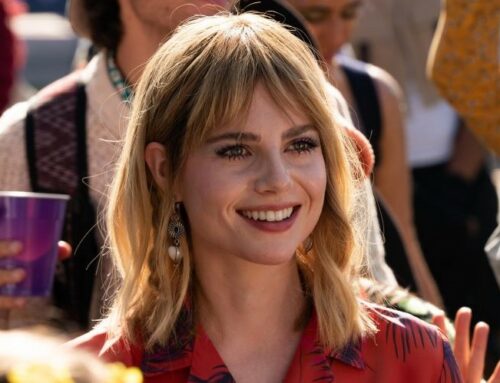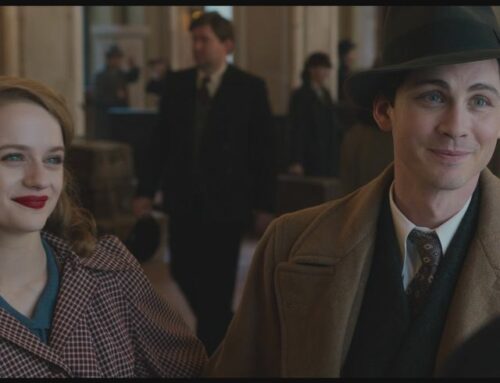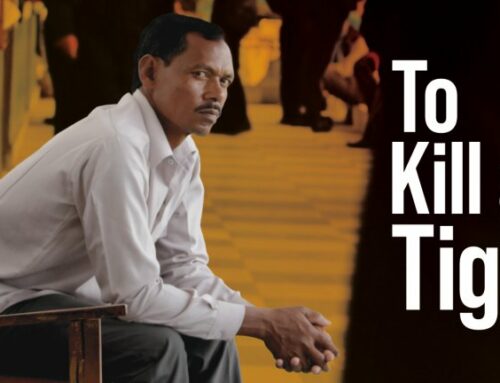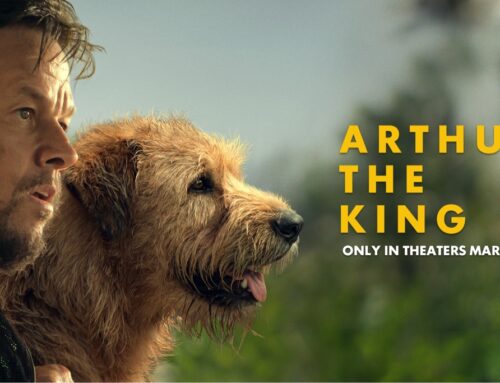It’s great– once it stops. The first frantic 45 minutes of filmmaker Baz (“Moulin Rouge”) Luhrman’s eye-popping, screen swollen, 3D, musical mashup of F. Scott Fitzgerald’s mythic novel brought me to the brink of motion sickness. Then it settled down, and the dramatic interplay of these iconic characters, against the deeper backdrop of the American Dream, played out in the fictional towns of East and West Egg on Long Island– took hold. I was gripped for the remainder of its 142 minutes.
Tobey Maguire is the perfect Nick Carraway, open, observant, decent, even-tempered. He’s come to the village of West Egg and takes a little summer cottage next to a really big summer cottage belonging to a mysterious millionaire named Jay Gatsby. Little does Nick know– Gatsby will turn out to be as much of a mystery to himself as he is to everyone else. Played by Leonardo Di Caprio, Gatsby projects a glamorous, moneyed veneer, his new wealth the product of bootlegging; but his boyish features belie a relentless idealism and naivete. He is driven by romance– the desire for the girl of his dreams– he met her when they were young, before she married the old-moneyed Tom Buchanan (Joel Edgerton) in East Egg. As Nick observes of Gatsby, “some vision of himself was wedded to her… he fell in love and lost himself.” He must now reclaim her, the embodiment of the American dream of success, power, beauty — Daisy — the object of his devotion and completion, who is here played by the merely cute Carey Mulligan. DiCaprio is an infinitely more beautiful physical specimen than she, but Mulligan’s less than idyllic features– yet sumptuous gifts as an actress– play to the character’s flaws. She will prove an ornate empty vessel, unworthy of Gatsby’s devotion.
Luhrman brings this drama of class, crime, collateral, clout, and identity into balance and rich focus. As Gatsby pursues Daisy right under the nose of her philandering brute of a husband, Luhrman doesn’t let all the topiary and tulle get in the way. Underneath the luscious set design and extravagant costumes is a dramatic showdown with real teeth. The scenes where Tom challenges Gatsby, and Gatsby challenges Daisy to confess she NEVER loved Tom– have all the suspense of a Sergio Leone western. The camera circles the room, fixing on each face, closer and closer, until the tension explodes. DiCaprio’s emotionally naked meltdown is excruciating to watch as Daisy wilts, and a fragile flower turns quivering coward. My head was spinning as the final tragic scenes unwound–the accident, the betrayal, the murder and suicide, Gatsby’s future already behind him, as the light goes out, and– to paraphrase the novel’s exquisite last line– he and we are borne back against the current, into the past, the dream more elusive the harder we pursue it.
To his great credit, Luhrman makes this all lucid and palpable to a new audience. I regret only that the filmmaker took the easy way out and made an aesthetic decision to introduce the music of Jay Z, Amy Winehouse, Beyonce, and other contemporary artists to the soundtrack so that current audiences might hear this world of flappers the way audiences of that era did– as something fresh, hot, and young. But how much more satisfying– and perhaps difficult –if he had dared to make the soundtrack of the roaring 20’s written by Cole Porter, Fats Waller, Gershwin– sound new. Nevertheless, Luhrman has given us a Gatsby that taps into what’s timeless and inevitable about this delicate, almost mystical work.
See THE GREAT GATSBY and see it in 2D; 3D actually gives it less depth.






Leave A Comment
You must be logged in to post a comment.